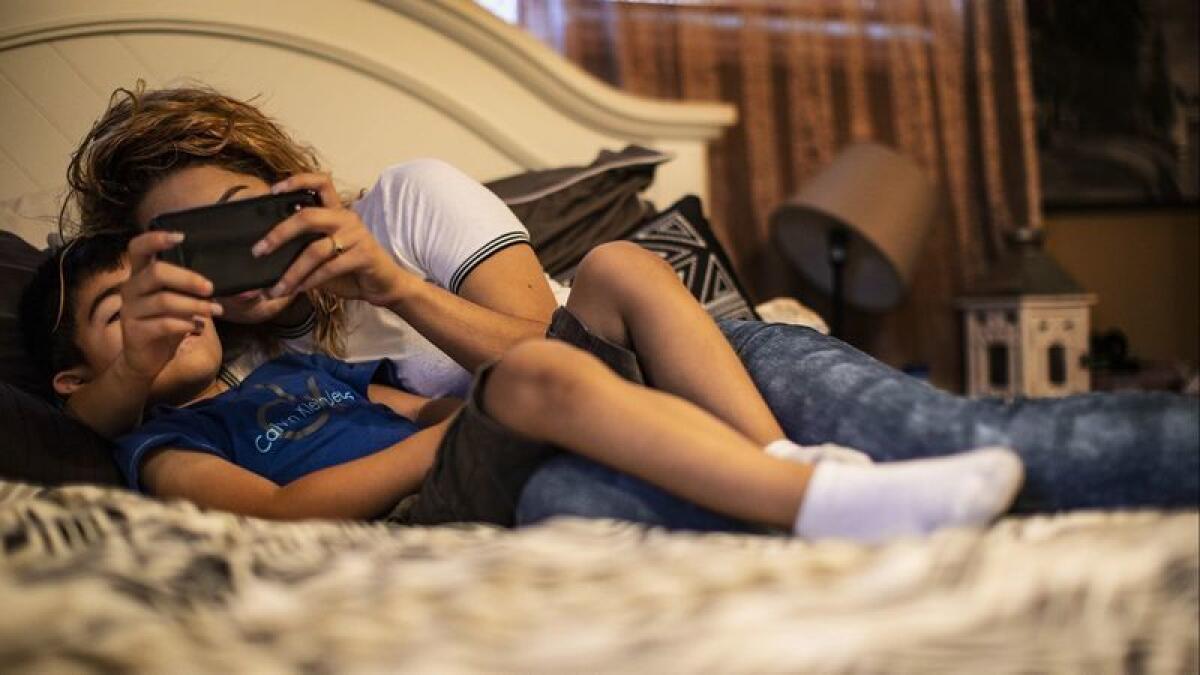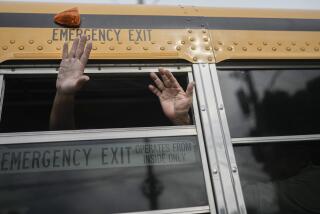2,700 Central American children could be reunited with families in settlement

The Trump administration and lawyers for refugee advocates reached a settlement Friday that could allow 2,714 Central American children to be reunited with their families in the United States.
Under the settlement, which needs to be approved by a judge, the government has to present a plan to finish processing the children’s applications by April 18.
The move comes more than a year after the Trump administration in January 2017 suddenly ended the Obama-era Central American Minors program, which was designed to help thousands of unaccompanied children fleeing violence in El Salvador, Guatemala and Honduras to join family already in the United States.
The program had allowed immigrants who were lawfully present in the U.S. to apply for refugee status or humanitarian parole on behalf of their children younger than 21, as well as their own spouses and grandchildren living in the three countries of Central America’s so-called Northern Triangle.
When the program ended, more than 2,700 young people had their conditional approvals to relocate to the U.S. rescinded. Advocates filed a class-action lawsuit on behalf of six families over the termination of the program.
Some had already paid for flights and were days away from reuniting when, lawyers say, the Trump administration secretly shut down the program.
Last December, U.S. Magistrate Judge Laurel Beeler found that the federal government’s mass revocation of conditional approvals was unlawful. Beeler ruled in March that the government’s action was causing irreparable harm to the plaintiffs by preventing the children from escaping life-threatening danger, and ordered the Trump administration to resume processing the applications.
Linda Evarts, an attorney with the International Refugee Assistance Project who represents the plaintiffs, said her clients followed the government’s rules and tried to legally reunite with their parents.
“We hope that these children will soon escape the deadly dangers they face in Central America and reunite with their parents in safety,” she said. “We are hopeful that families will start to be reunited as early as this summer.”
One of the plaintiffs is a woman known as S.A., whose youngest daughter and grandson were set to arrive in February 2017 after she paid nearly $5,000 for their flights, DNA tests and other program requirements before the administration blocked their travel.
S.A., 53, has maintained lawful status in the U.S. since 2001 under a program designed to help citizens of countries experiencing armed conflict or other conditions that prevent them from returning safely.
In a statement, S.A. said she was was happy that a settlement had been reached.
“My heart jumps and cries for joy because there are so many who need to escape danger,” she said. “I have faith that I will be together with my daughter and grandson soon.”
More to Read
Sign up for Essential California
The most important California stories and recommendations in your inbox every morning.
You may occasionally receive promotional content from the Los Angeles Times.











